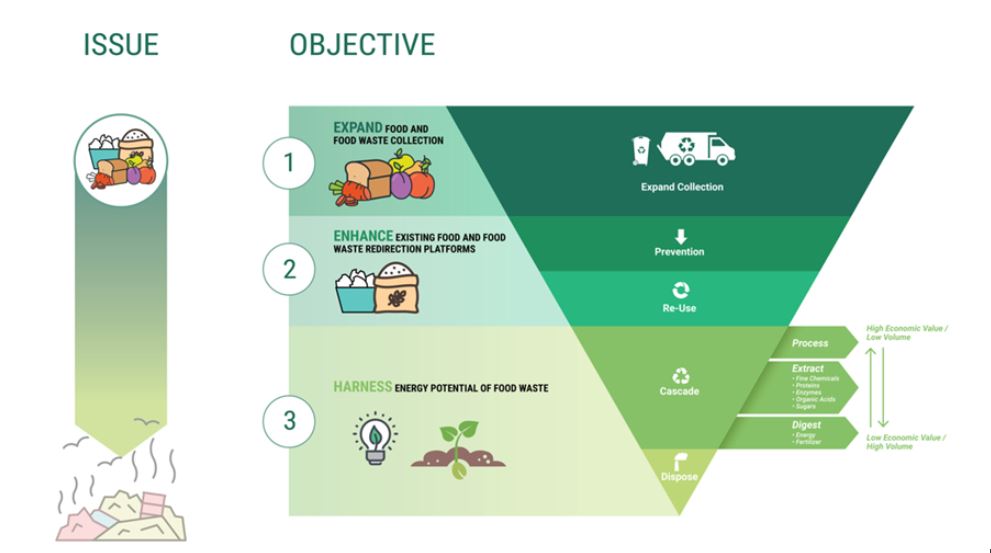Projects
Food and Waste Flow Study – Guelph, ON
Dillon was retained by the City of Guelph and the County of Wellington to support the development of Canada’s first regional circular food economy.
In 2019, City of Guelph and the County of Wellington (Guelph-Wellington) was awarded $10 million through Infrastructure Canada’s Smart Cities Challenge to develop Canada’s first circular food economy. Our Food Future is the ambitious initiative that is striving to achieve these three bold goals by 2025:
- 50% increase in access to affordable, nutritious food;
- 50 new circular food businesses, collaborations and social enterprises; and
- 50% increase in economic benefit by unlocking the value of waste.
In early 2020, Dillon was retained by Guelph-Wellington to support this ambitious journey and has currently delivered two of three work packages. First, a comprehensive Food Material Flow Study was developed which was provided in partnership with Amsterdam-based Metabolic and University of Guelph professor Dr. Mike von Massow. The study analyzed about 70 datasets to identify opportunities for change within the food supply chain. A Sankey diagram was produced to illustrate the flow of food and food waste through the demand side (production, processing, manufacturing, distribution) and the end-of-life flows in Guelph-Wellington. The outcome of the analysis was the identification of hotspots – areas where waste is causing disproportionate (or irreversible) social or environmental harm or where value is lost.
Dillon supported the preparation of a Federation of Canadian Municipalities (FCM) grant for the second phase of work. The project received the funding to complete a feasibility study which involved identifying and shortlisting opportunities for intervention in the current food system through two key activities. First, the Dillon team worked with local stakeholders through a series of engagement workshops that helped develop a vision for Guelph-Wellington’s food supply chain and considered the feasibility of implementing the interventions as pilot projects. Secondly, Dillon developed business cases to forecast the impact of preferred interventions, based on social, environmental and economic metrics.
Dillon is in the process of preparing a FCM grant application to fund three pilot interventions as the third and final phase of work. This phase aims to implement the three pilots and monitor their performance against Key Performance Indicators that are aligned with Guelph-Wellington’s circular food system goals (Figure 1). The pilots will assess the potential to:
- Expand Food and Food Waste Collection: Collect more food and food waste for diversion from disposal from the industrial, commercial and institutional (IC&I) sector (where poor diversion rates currently exist) by incentivizing waste generators (e.g., , restaurants and grocery stores) to enter into an agreement for the provision of services that divert food and food waste.
- Enhance Existing Food and Food Waste Redirection Platforms: Test tactics to improve existing exchange platforms so that they can increase the diversion of edible and reusable food, and avoid food waste; and
- Harness Energy Potential of Food Waste: Verify the economic, environmental, and social value of organic waste streams that have particularly high biogas generating potential.

The three proposed pilots address the issue of food and food waste being disposed at three stages: collection, prevention/re-use and cascade (i.e., waste processing). The project aims to pilot interventions in these three areas as a systematic approach that is applied across the food waste intervention hierarchy. The three pilots are complimentary and are expected to work in alignment with one another towards a circular food economy in Guelph-Wellington and the attainment of Our Food Future’s goals.
Awards
- Federation of Canadian Municipalities, Sustainable Communities Awards, Waste Award – 2023
Project Details
Project Partner: City of Guelph
Business Unit: Waste Management
Service offering: Advisory Services